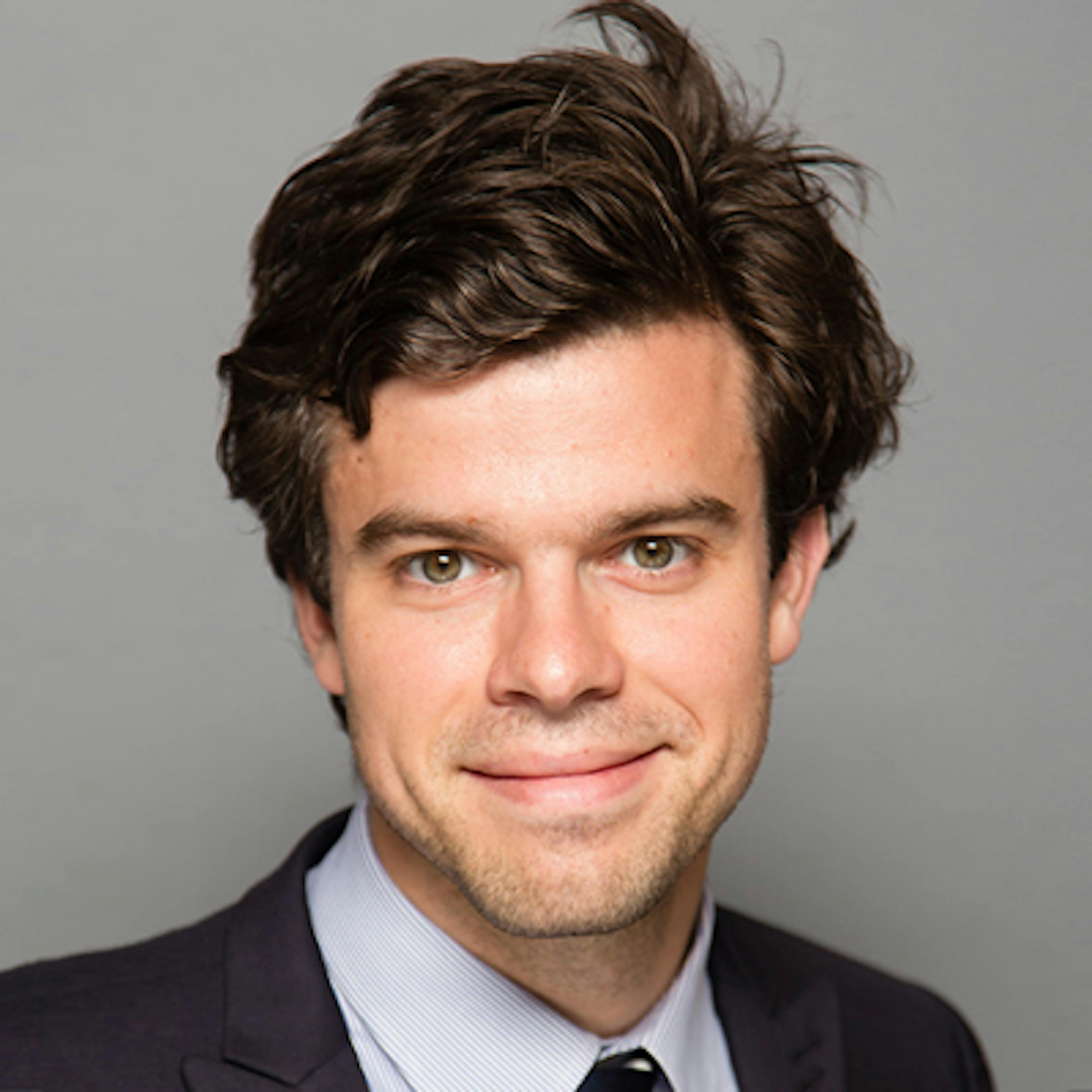Credit was a strong contributor to performance within Carmignac’s Funds in the last few years
What is behind your investment process in credit markets?
![[Insights] 2019 04_FF_Exp_Credit (Pro) 1 EN](https://carmignac.imgix.net/uploads/article/0001/08/56977351a6248df6e3577cab4d97a6258689aa52.png?auto=format%2Ccompress&fit=fill&w=3840)
With roughly €12bn1 invested in credit and structured credit markets across our Funds, the credit team plays a key role at Carmignac. Our unconstrained approach, characterised by completely non-benchmarked, active, flexible and opportunistic management, has been crucial to our success. We pick securities wherever we see value. These typically fall outside the scope of traditional credit investors’ mandates or require a combination of skills that our team is endowed with, and that few credit investors have.
The team possesses a wide range of credit skills, covering investment-grade, high-yield, distressed corporate and structured credit across developed and emerging markets. We are pleased to have a small, tight-knit group that embodies the entrepreneurial spirit we share in the firm. However, it should also be pointed out that our team is not isolated within Carmignac as all our investments benefit from the expertise of the whole fund management team.
The investment team has extraordinarily diversified knowledge and credit analysts work on every situation with specialised teams: European equities, emerging-market equities, sector and commodity specialists. We combine their insight, experience and understanding of markets with our credit skills in order to optimise our investment decisions.
Carmignac has launched a new Fund dedicated to credit: Carmignac Portfolio Unconstrained Credit
What is the value added of your Fund in navigating credit markets compared with your peers?
The aim of the Fund is to maximise returns, net of the cost of risk, through rigorous credit selection, not only at any point in time, but also across the credit cycle. We estimate the cost of risk – which we define as the cumulative probability of default times the loss given default – for each security. The difference between the spread and this cost of risk yields a premium net of risk. We aim at maximising this premium while also controlling for market or volatility risk. To achieve the latter, we want the annual carry of the bond to be able to absorb the associated price decrease for each security in 90% of the foreseeable stressed scenarios. Hence, as markets get wider (i.e. cheaper), we can take on more risk, and when credit spreads get tighter (i.e. more expensive), we reduce risk.
This is opposed to a traditional credit fund, which takes on risk when it gets inflows, and most credit funds get inflows when credit has performed well. Conversely, a traditional credit fund sells risk when it suffers from outflows, and this happens after the fund has experienced poor performance. Thus, credit funds will structurally take on too much risk when risk is expensive and too little risk when risk is cheap. Carmignac Portfolio Unconstrained Credit seeks to do exactly the opposite: buying credit risk once valuations are cheap and selling it when they are expensive, allowing the Fund to generate an attractive risk-adjusted return throughout the credit cycle. The investment objective of the Fund is to outperform its Reference Indicator2 over a minimum investment period of two years.
![[Insights] 2019 04_FF_Exp_Credit (Pro) 2 EN](https://carmignac.imgix.net/uploads/article/0001/08/dc4afc2c891266a84ef7c49be5616fc614d60bd2.png?auto=format%2Ccompress&fit=fill&w=3840)
This contrarian approach with a focus on volatility and liquidity is decisive to invest in the asset class, given that, contrary to returns on equities, credit returns come from contractual obligations. Credit investors can therefore be right against the market.
What are the key features of your Fund’s investment process?
![[Insights] 2019 04_FF_Exp_Credit (Pro) 3 EN](https://carmignac.imgix.net/uploads/article/0001/03/8510c28b557902abbd3b00cb514b11c1c7332af0.png?auto=format%2Ccompress&fit=fill&w=3840)
Our credit expertise comprises a strong bottom-up analysis, rounded out by our macro scenario and buttressed by a strong set of technical skills in relation to credit instruments. It may sound corny, but we have a real passion for understanding business models, capital structure and complex features of securities. We maintain continuous interaction with equity sector specialists inside Carmignac and our access to top management teams, consultants and sell-side analysts is second to none. It is important to stress that less than 5% of all opportunities we examine ultimately make it into the portfolio. Portfolio construction is therefore rigorous, and it is based first and foremost on high selectivity.
Furthermore, the credit team benefits from our in-house understanding of global macro trends. Our daily interactions with the rest of the fixed income team and the cross-asset team allow us to direct our attention to promising regions and sectors, and to unearth attractive opportunities offered by credit markets. Last but not least, we have brought together very strong technical skills in relation to credit instruments. Strong technicality gives the team the edge it needs to maximise returns and pursue alpha even in expensive markets.

Our unconstrained approach enables us to navigate credit markets against the consensus

Our strong bottom-up analysis skills and rigorous risk management framework allow us to build a diversified portfolio of attractive risk-rewards
For more information about the Funds:
MAIN RISKS OF CARMIGNAC PORTFOLIO UNCONSTRAINED CREDIT
CREDIT: Credit risk is the risk that the issuer may default. INTEREST RATE: Interest rate risk results in a decline in the net asset value in the event of changes in interest rates. RISK OF CAPITAL LOSS: The portfolio does not guarantee or protect the capital invested. Capital loss occurs when a unit is sold at a lower price than that paid at the time of purchase. CURRENCY: Currency risk is linked to exposure to a currency other than the Fund’s valuation currency, either through direct investment or the use of forward financial instruments. The Fund presents a risk of loss of capital.
Related articles

Carmignac Portfolio Global Bond: Letter from the Fund Manager

Carmignac P. Flexible Bond: Letter from the Fund Managers

Carmignac P. Credit: Letter from the Fund Managers
This article is intended for professional clients. This document is intended for professional clients. This article may not be reproduced, in whole or in part, without prior authorisation from the management company. This article does not constitute a subscription offer, nor does it constitute investment advice. The information contained in this article may be partial information, and may be modified without prior notice. Carmignac Portfolio SICAV is an investment company under Luxembourg law, conforming to the UCITS Directive. Access to the Fund may be subject to restrictions with regard to certain persons or countries. The Fund is not registered in North America, in South America, in Asia nor is it registered in Japan. The Funds are registered in Singapore as restricted foreign scheme (for professional clients only). The Fund has not been registered under the US Securities Act of 1933. The Fund may not be offered or sold, directly or indirectly, for the benefit or on behalf of a "U.S. person", according to the definition of the US Regulation S and/or FATCA. The Fund presents a risk of loss of capital. The risks and fees are described in the KIID (Key Investor Information Document). The Fund's prospectus, KIIDs and annual reports are available at www.carmignac.com, or upon request to the Management Company. The KIID must be made available to the subscriber prior to subscription. • In Switzerland, the Fund’s respective prospectuses, KIIDs and annual reports are available at www.carmignac.ch, or through our representative in Switzerland, CACEIS (Switzerland) SA, Route de Signy 35, CH-1260 Nyon. The paying agent is CACEIS Bank, Paris, succursale de Nyon/Suisse, Route de Signy 35, 1260 Nyon. • In the United Kingdom, the Funds’ respective prospectuses, KIIDs and annual reports are available at www.carmignac.co.uk, or upon request to the Management Company, or for the French Funds, at the offices of the Facilities Agent at BNP PARIBAS SECURITIES SERVICES, operating through its branch in London: 55 Moorgate, London EC2R. This material was prepared by Carmignac Gestion and/or Carmignac Gestion Luxembourg and is being distributed in the UK by Carmignac Gestion Luxembourg UK Branch (Registered in England and Wales with number FC031103, CSSF agreement of 10/06/2013).
![[Main Media] [Fund Focus] [CSC PSC] Stargazing telescope](https://carmignac.imgix.net/uploads/article/0001/07/ce4ee5e57ec1b5529e125cc02208482b95a3bcb6.jpeg?auto=format%2Ccompress&crop=faces&fit=crop&w=3840)
![[Management Team] [Author] Viros Florian](https://carmignac.imgix.net/uploads/NextImage/0001/18/%5BManagement-Team%5D-Viros-Floria.png?auto=format%2Ccompress&fit=fill&w=3840)